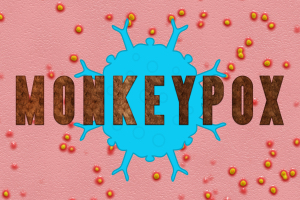
Geneva: World Health Organization Director-General Dr Tedros Adhanom Ghebreyesus today said that the Monkeypox outbreak can be stopped by taking steps needed to stop transmission and by protecting the vulnerable groups.
Dr Ghebreyesus declared a public health emergency of international concern over the global monkeypox outbreak, last Saturday (July 23, 2022). He said today that the best way to do that is to reduce the risk of exposure. “That means making safe choices for yourself and others,” he added.
More than 18 thousand cases of monkeypox have now been reported to WHO from 78 countries, with more than 70% of cases reported from the European Region, and 25% from the Region of the Americas.
So far, five deaths have been reported, and about 10% of cases are admitted to the hospital to manage the pain caused by the disease.
The focus for all countries must be on engaging and empowering communities of men who have sex with men to reduce the risk of infection and onward transmission, provide care for those infected, and to safeguard human rights and dignity.
Although 98% of cases so far are among men who have sex with men, anyone exposed can get monkeypox. In addition to the transmission through sexual contact, the disease can be spread in households through close contact between people, such as hugging and kissing, and on contaminated towels or bedding.
“For men who have sex with men, this includes, for the moment, reducing your number of sexual partners, reconsidering sex with new partners, and exchanging contact details with any new partners to enable follow-up if needed,” he advises.
WHO recommended that countries take action to reduce the risk of transmission to other vulnerable groups, including children, pregnant women and those who are immunosuppressed. It also recommended targeted vaccination for those exposed to someone with monkeypox, and for those at high risk of exposure, including health workers, some laboratory workers, and those with multiple sexual partners. At this time, we do not recommend mass vaccination against monkeypox.
“One smallpox vaccine, called MVA-BN, has been approved in Canada, the European Union and the U.S. for use against monkeypox. Two other vaccines, LC16 and ACAM2000, are also being considered for use against monkeypox,” Dr Ghebreyesus said but conceded that WHO still lack data on the effectiveness of vaccines for monkeypox, or how many doses might be needed.
“That’s why we urge all countries that are using vaccines to collect and share critical data on their effectiveness,” he said.
The D-G disclosed that WHO was developing a research framework that countries could use to generate the data needed to better understand how effective these vaccines were in preventing both infection and disease, and how to use them most effectively.
“It’s important to emphasise that vaccination will not give instant protection against infection or disease, and can take several weeks. That means those vaccinated should continue to take measures to protect themselves, by avoiding close contact, including sex, with others who have or are at risk of having monkeypox,” he cautioned.
Meanwhile, there are also challenges with the availability of vaccines. There are about 16 million doses of MVA-BN globally. Most are in bulk form, meaning they will take several months to “fill and finish” into vials that are ready to use. Several countries with monkeypox cases have secured supplies of the MVA-BN vaccine, and WHO is in contact with other countries to understand their supply needs.
WHO today urged countries with smallpox vaccines to share them with countries that don’t to check the outbreak.
“We must ensure equitable access to vaccines for all individuals and communities affected by monkeypox, in all countries, in all regions. While vaccines will be an important tool, surveillance, diagnosis and risk reduction remain central to preventing transmission and stopping this outbreak,” Dr Ghebreyesus said.
– global bihari bureau





